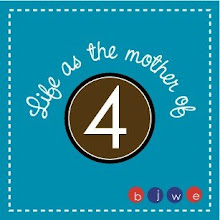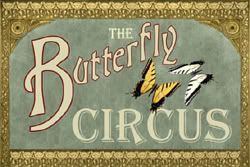Update: New statistics for week 42 (
Update:
If you're interested in statistics both worldwide and in the US I spent some time and gathered some from the CDC and WHO. I was interested that CBS reported that the CDC was significantly over estimating people who had swine flu. On one hand, I'm glad it's milder than reported. On the other hand, that's ridiculous! Isn't it the CDC's job to gather statistics? But definitely check out the article in the Atlantic Monthly regarding flu vaccinations and statistics Does the Vaccine Matter?
Australia's flu season is over. N1H1 sounded pretty mild.
*****
Last Saturday night I went to Marcy's synagogue to hear a lecture on Buddhism. The speaker was a little dry and my mind wandered but on the positive side I now have intelligent questions to ask Sean.
After it ended we talked to one of Marcy's friends. There was joy and happiness around while we talked politics even religion, mine and theirs. Then she brought up vaccines. She said (since we seemed so reasonable), "You don't believe vaccines cause autism," as a prefix to her next topic. And my head started nodding up and down like a bobble-head doll. She went on to say that people who didn't get flu shots or other vaccines were basically ridiculous. She was actually pretty well informed of the party line. And she mentioned that her husband worked with vaccines and epidemiology at which point I said, of course, you are correct and I bow to your superior knowledge. (Do I even need to say that was a joke? Didn't think so.)
When I mentioned I had two sons who became autistic two weeks after routine vaccinations she countered with a "wasn't that around 2 years" statement. Which I countered with a 13 and 17 months and the same person who told me my oldest was ASD said "you don't have to worry about William, he's fine;" less than two months before he became autistic. Oh. She had nothing to say to that and moved on to her next attack.
She said studies have proven thimerosal doesn't cause autism. I said no those studies haven't been done yet. I brought up a specific study and mentioned serious flaws. She said she hadn't read the study (I knew that). She mentioned a vaccinated vs, unvaccinated study had been done. I said no. That's the study we want done! The CDC and NIH refuse to do that study!
She went on to talk about how dangerous N1H1 is. I said that the last statistics I read said that 400 people have died from it world wide. During the same time 13,000 people have died from a regular flu strain. She tried to bring up statistics but Marcy crushed her by bringing up the US population and applying it to her statistics making it a wash.
I'm sure she left angry and frustrated, knowing we were wrong but unable to prove it! And probably distressed that we knew more than she did but, of course, safe in the knowledge naturally we knew less than her husband.
Today I found a really interesting article in the Atlantic, Does the Vaccine Matter?
It asks the question, "But what if everything we think we know about fighting influenza is wrong? What if flu vaccines do not protect people from dying—particularly the elderly, who account for 90 percent of deaths from seasonal flu? And what if the expensive antiviral drugs that the government has stockpiled over the past few years also have little, if any, power to reduce the number of people who die or are hospitalized?"
After "comb[ing] through eight years of medical data on more than 72,000 people 65 and older. . . . . Jackson’s findings showed that outside of flu season, the baseline risk of death among people who did not get vaccinated was approximately 60 percent higher than among those who did, lending support to the hypothesis that on average, healthy people chose to get the vaccine, while the “frail elderly” didn’t or couldn’t. In fact, the healthy-user effect explained the entire benefit that other researchers were attributing to flu vaccine, suggesting that the vaccine itself might not reduce mortality at all."
"The history of flu vaccination suggests other reasons to doubt claims that it dramatically reduces mortality. In 2004, for example, vaccine production fell behind, causing a 40 percent drop in immunization rates. Yet mortality did not rise. In addition, vaccine “mismatches” occurred in 1968 and 1997: in both years, the vaccine that had been produced in the summer protected against one set of viruses, but come winter, a different set was circulating. In effect, nobody was vaccinated. Yet death rates from all causes, including flu and the various illnesses it can exacerbate, did not budge. Sumit Majumdar, a physician and researcher at the University of Alberta, in Canada, offers another historical observation: rising rates of vaccination of the elderly over the past two decades have not coincided with a lower overall mortality rate. In 1989, only 15 percent of people over age 65 in the U.S. and Canada were vaccinated against flu. Today, more than 65 percent are immunized. Yet death rates among the elderly during flu season have increased rather than decreased."
It a very good article and poses interesting questions, please read the whole article rather than relying on my excerpts. Also, check out the Atlantic's Facts about Swine Flu page.







4 comments:
I posted part of this on pinching your pennies.
I had my biology students research a little on various vitamins and how they affect an individuals susceptibility of getting sick. I thought it was important for them to know how they could protect themselves from becoming sick.. The government would save hundreds of billions if people took enough vitamin D (fortified in milk or supplements) for example. As you know, humans need the sun to make this important vitamin, but during the winter months we don't spend enough time outdoors to produce it.
I try to be very conscious of my diet and health since I teach over 250 Jr high students and have never had a flu shot. Besides, the last time I saw anything on the h1n1 vaccine results from other parts of the world... they were inconclusive as too the vaccines effectiveness... suprise suprise. Some results seemed to indicate that they caused a higher incidence of infection.
JD
here is an interesting twist...Statin Drugs Cut H1N1
Statin Drugs Cut H1N1 Deaths
You can cut your risk of death from swine flu H1N1 with cholesterol-lowering statin drugs.
Overall, 2.1 percent of patients taking statins died, compared to 3.2 percent of patients not taking statins. That means patients taking statins were just under 50 percent less likely to die.
But how quickly do the statins exercise protective effects? Few people will start taking statins before they get the flu in order to cut an already pretty low risk of dying from H1N1.
Update: Someone points out that the real reduction in the risk of dying is 35%. But the 50% figure would be (almost) correct if one used the lower rate as the reference point. The people not taking statins are 47.6% more likely to die.
Another commenter recommends vitamin D. Vitamin D does reduce respiratory infections in children and other lines of evidence point toward an anti-influenza effect from vitamin D. Knowing all this I decided some weeks ago to become more consistent about taking 2000 IU of vitamin D daily.
By Randall Parker at 2009 October 29 11:37 PM Pandemic Prepare Drugs
That's really interesting! I wonder why taking statins lower the risk of death? Vitamin D -- I buy that.
Post a Comment